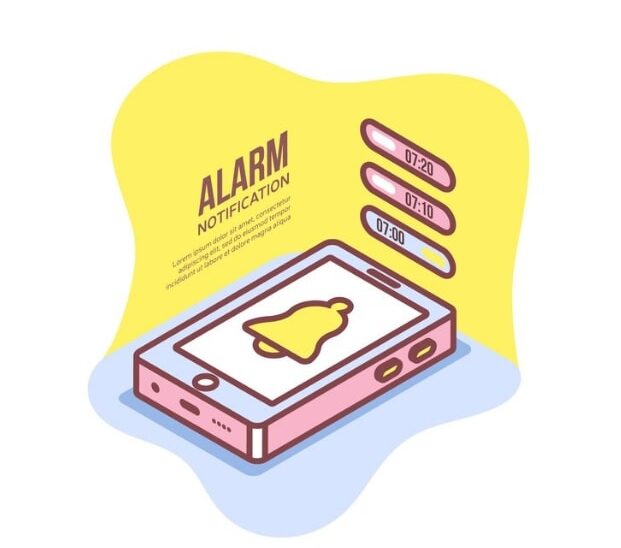
The Critical Role of Power Failure Alarms in Keeping Your Business Running
Unexpected power outages can bring business operations to a grinding halt, potentially resulting in significant revenue losses and dissatisfied customers. Having a reliable power failure alarm system in place is a key part of any business continuity plan. This article explores why a power failure alarm device is so vital for organizations and how implementing it can mitigate the impacts of utility power disruptions.
The Damages of Losing Power
Most modern enterprises rely heavily on electricity to function. When the lights go out, so does much of the equipment and technology that keeps operations running smoothly. Without backup power sources, businesses can experience:
- Loss of lighting, machinery, POS systems, and other critical infrastructure
- Inability to access computer networks, servers, and digital files
- Loss of climate control in work environments
- Inoperable phones, security systems, and electronic locks
- Huge financial costs from spoiled inventory, production delays, and lost sales
The US Department of Energy estimates power outages cost American businesses over $150 billion annually. For small and mid-sized companies, a prolonged utility failure can even jeopardize their future viability. Having reliable alerts when outages occur is key to minimizing damages.
How Power Failure Alarms Help Mitigate Disruption
Installing a power failure alarm device that activates during electrical outages can greatly improve incident response times. Within seconds of losing electricity, loud audible alarms sound off, notifying staff of the issue even if they are away from their workstations. This enables personnel to immediately begin implementing business continuity plans, like safely shutting down machinery, activating alternative light sources, and retrieving flashlights or generators from storage.
In server rooms and other areas with network infrastructure, alarms alert IT teams to gracefully shut down servers before exhausting backup battery units. In facilities that rely on electricity for climate control, alarms serve to prevent inventory and products from spoiling if heating or refrigeration is lost. Faster response times enabled by power failure alarms translate directly into reduced financial impacts from outages.
Monitoring Alarm Status Remotely
Another benefit of modern alarm systems is the ability to monitor their status remotely via web interfaces. If power is lost during off-hours, designated personnel receive mobile push notifications of triggered alarms no matter where they are physically. This allows them to assess situations accurately and dispatch the necessary maintenance teams right away, rather than waiting until whenever staff returns to the premises.
Highly sensitive monitoring systems can even detect brief “blips” in electricity that may not otherwise get noticed. This enables infrastructure issues to be identified and addressed proactively before causing more severe disruptions down the road. The ability to respond at a moment’s notice is invaluable for keeping operations running optimally.
Choosing Effective Alarm Hardware
With power failure alarms playing such a vital role, using high-quality hardware is a must. Commercial-grade products certified by safety organizations, like UL or FM Global, ensure reliability and compliance with electrical codes. When selecting devices, key factors to consider include:
- Loudness of audible alerts, 90+ decibel ratings optimize noticeability
- Visibility of visual alerts like flashing strobe lights
- Battery backup to keep alarms functioning during outages
- Connectivity protocols like cellular, WiFi, or Ethernet for remote monitoring
- Smart sensor capabilities to detect outages faster than manual breaker monitoring
Well-designed alarms utilize battery reservoirs that could last years without needing replacement. They also run self-diagnostic tests to confirm everything remains in working order. Prioritizing quality equipment provides peace of mind that power failures will be detected swiftly.
Strategic Alarm Placement Across Facilities
To reap the full advantages alarm systems offer for business continuity, devices should be deployed strategically throughout company premises. Important areas to include in an alarm installation map are:
- Server/IT rooms and telecom/networking closets
- Electrical and mechanical rooms
- Warehouses containing temperature-sensitive inventory
- Front desk/reception areas with staff oversight
- Executive and management offices
- Anywhere else with business-critical equipment
Too often companies limit alarms to just IT spaces. But modern network-based systems make blanketing entire buildings with alerts cost-effective. Positioning alarms within earshot wherever key operations take place ensures outages get noticed regardless of where personnel are located at the time. This expands responsiveness across the enterprise.
Integrating Alarms Into Emergency Plans
The last crucial step is incorporating power failure alarm systems into company emergency and incident response plans. Documented policies and procedures for reacting to triggered alerts can enhance coordination across teams. This includes:
- Defining staff roles and responsibilities related to outages
- Checklists of priority infrastructure to manually inspect
- Emergency contacts list of internal and external partners
- Protocols for communications with customers/public
Since alarms are just part of overall business continuity, fitting them appropriately into emergency frameworks optimizes their usefulness. Periodic testing through “fire drills” also evaluates effectiveness over time. Like with smoke alarms for fire safety, ongoing vigilance ensures alarm systems deliver their intended duty reliably when the next inevitable power disruption comes.
Keep Your Operations Running With Power Failure Alarms
Utility-grade power outages may be impossible to prevent fully. However, implementing early warning alarm systems helps curb the worst damages from losing electricity unexpectedly. Positioning audible/visual alerts strategically across worksites enables vastly improved response times compared to waiting until an outage gets manually detected otherwise. Supported by effective emergency planning and testing, power failure alarms provide indispensable protection for riding out whatever disruptions come your way. Don’t wait until it’s too late – make reliable alarms part of your business continuity strategy today.


